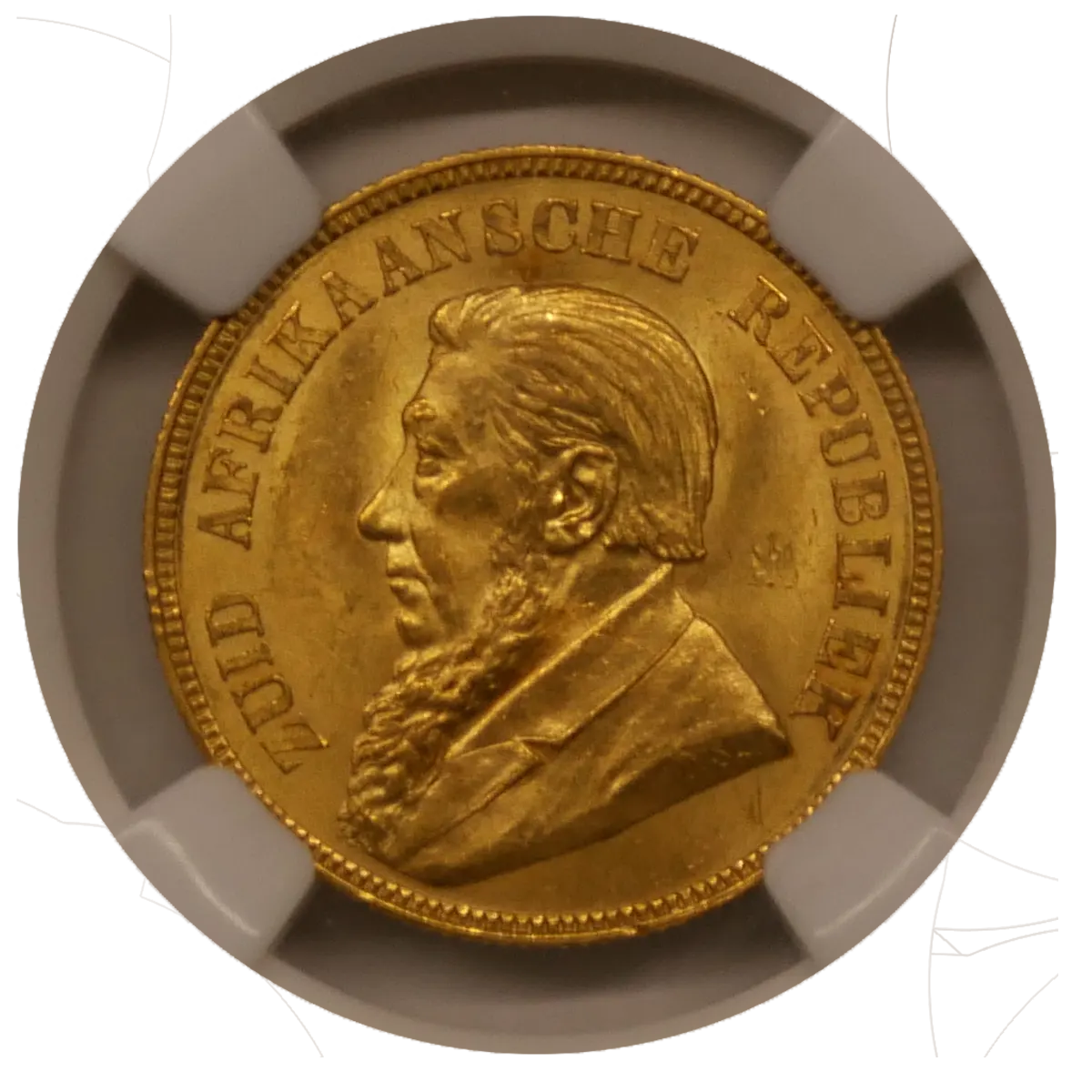1892 Kruger Pond Double Shaft Proof

The Proof Double Shaft Pond
The Proof Double Shaft Pond is easily recognized by the depiction of two shafts on the Voortrekker wagon. Historically, the actual wagon featured a single shaft (disselboom), allowing oxen to be harnessed on either side. This Proof issue also includes the initials O.S. on President Kruger’s shoulder, referencing the designer Otto Schultz.
Note: The image below depicts a certified MS63 Double Shaft Pond, not a Proof example.
Differences Between a Proof and an Uncirculated (UNC) Coin
- Sharper lettering and rim definition
- Perfectly struck stars
- More pronounced ribs on the wagon
1892 Proof Double Shaft Pond Forgeries
There are no known widespread forgeries of this coin, likely due to its extremely limited mintage and high-quality production.
Coin Specifications
| Coin Specifications | |
|---|---|
| Hern's Number | Z44 |
| Krause-Mishler Number | KM#10.2 |
| Designer | Otto Schultz |
| Diameter | 22 mm |
| Thickness | 1.56 mm |
| Mintage | 10–15 |
| Weight | 7.988 gm |
| Gold Content | 7.322 gm |
| Copper Content | 0.665 gm |
| Best Known | PF65 |
1892 Proof Double Shaft Pond
| Sample Sales | ||
|---|---|---|
| USA Based Auction Jan 2024 | PCGS PF55 | US $5,820 |
| USA Based Auction Jan 2025 | NGC P64 | US $78,000 |
The Exceptionally Rare 1892 Proof Double Shaft Pond
The 1892 Proof Double Shaft Pond is among the most elusive and prestigious coins in South African numismatics. Struck in very limited quantities, this proof issue stands apart from the standard circulation pieces due to its fine detail, mirrored fields, and exceptional strike quality.
This coin rarely appears at auction, and when it does, it draws significant attention. In January 2024, a specimen graded PCGS PF55 was sold for $5,820. Just a year later, in January 2025, a higher-grade NGC PF64 commanded an impressive $78,000, underlining its rarity and desirability among elite collectors.
The 1892 Proof Double Shaft Pond is not only historically important but also a showcase of the finest minting craftsmanship from the era. Its presence in any collection is a mark of distinction.